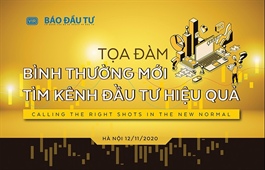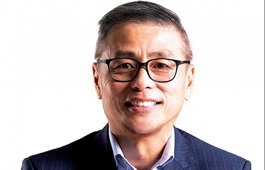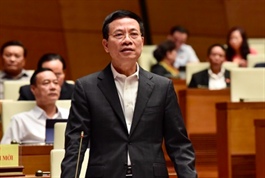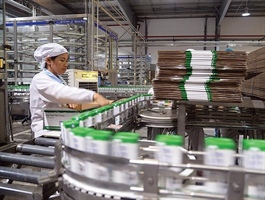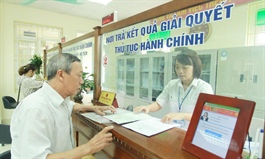Potential impacts of Biden administration on Vietnam economy
Potential impacts of Biden administration on Vietnam economy
The US – Vietnam relations have witnessed steady progress over the past 25 years, ranging from politics, foreign policy, to economy and trade, among others.
Vietnam, given its large population of over 90 million and strategic location in the Asia – Pacific region, is fast becoming a major part in superpowers' policies, including the US.
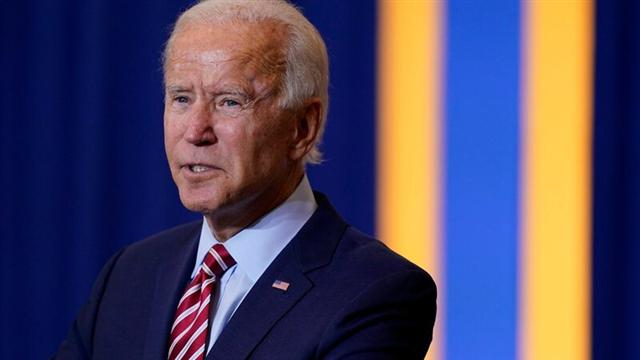
US polices under the new administration are expected to be more favorable for Vietnam. Photo: AP.
|
Dao Tran Nhan, former Commercial Counselor of the Vietnamese Embassy in the US, told VnExpress that Vietnam will always play a role in the US foreign policy, regardless of who will become the next president.
US media on November 7 called Democratic presidential candidate Joe Biden the 46th US president after projecting his win in Keystone State Pennsylvania with 20 electoral votes, resulting in more than 270 votes needed to win the unprecedented race. Incumbent President Donald Trump's campaign has appealed vote counting in several swing states.
Mr. Nhan pointed out that the invariability in the US-Vietnam relations across various US administrations, either Republican or Democratic, in which the priority has always been to boost economic and diplomatic relations with Vietnam.
Economist Nguyen Duc Thanh said there are no major differences between the Democratic and Republic parties in terms of the US’ economic relations with other countries, except for the approach to carry out these policies.
Mr. Thanh said 25 years of the Vietnam - US relations have witnessed four US administrations with Democratic and Republican presidents alternately taking office. During this time frame, the bilateral relations have made significant progress under the comprehensive partnership, ranging from politics, foreign policies, economy, trade, among others, regardless of the party in the presidency.
The US under Barack Obama’s pivot to the Asia – Pacific has not been changed since. Therefore, Vietnam will always play a significant role in this new order, Mr. Thanh asserted.
US may rejoin CPTPP
Dang Hoang Hai Anh, a visiting professor at the US's Indiana University, expected the US polices under the new administration would be more favorable for Vietnam, which comes from Mr. Biden’s more open approach to free trade.
During his election campaign, Mr. Biden showed his support to free trade and less protectionism.
Mr. Biden is supportive of the US’s participation in the Comprehensive and Progressive Agreement of Trans–Pacific Partnership (CPTPP), formerly known as TPP, a deal that the US under President Donald Trump withdrew from four years ago.
In case the US decides to rejoin the deal, it will be a major boost for many member countries, including Vietnam, Mr. Anh noted.
Lecturer Nguyen Xuan Thanh at Fulbright University of Vietnam said there is optimism that the US would return to CPTPP, however, the possibility is not too high due to other more urgent issues that the Democrats need to focus on after the election.
As Vietnam’s trade surplus with the US reached US$62 billion in the first ten months of 2020, the US Treasury Department said the Vietnamese dong is currently being devalued by 4.7% against the US dollar in 2019.
Michael Piro, COO of Indochina Capital, said while Mr. Biden is concerned about the issue of trade deficit and currency manipulation in other countries, including Vietnam, he would be more flexible in these issues.
Echoing Mr. Piro’s view, Mr. Thanh from Fulbright said this could be positive news for Vietnam in 2021.
Dang Hoang Hai Anh from Indiana University expected the US's trade relations with Southeast Asia under Biden’s presidency may not entirely depend on mutual benefits, but there will be certain preferential treatment granted to ASEAN countries.
According to Mr. Hai Anh, the US needs a partner with such geostrategic importance as Vietnam, which means the country would continue to attract high quality foreign direct investment (FDI) flows in the coming time.
Shift in global FDI
Experts believed that the ongoing trade and technology friction between the US and China would not end soon.
Clete Willems, former deputy director of the national Economic Council under the Trump administration, said the US under Mr. Trump has changed the conversation, the approach, and the outlook on China forever.
In this context, a global shift in supply chains out of China to other countries, including Vietnam, would continue, aiming to avoid the over-dependence of the US and its allies on a single economy.
However, it is clear that Vietnam is not the only option in the current shift, not to mention multinationals that are based in the US or Europe could bring part of operations back home.





